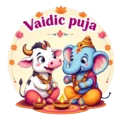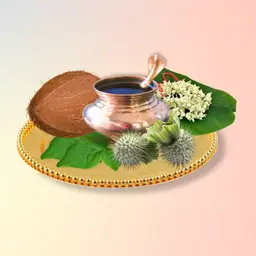
Description
The divine Jyotirlinga of Omkareshwar, located on the sacred island of Mandhata in Madhya Pradesh, is not only one of the 12 Jyotirlingas of Lord Shiva but also a powerful center for spiritual upliftment and inner peace. Among the deeply revered rituals performed at Omkareshwar is the offering of Panchmahabhent — a sacred five-part donation made in devotion to Lord Shiva.
In this blog, we will explore the meaning of Panchmahabhent, its spiritual significance, and why making this offering at Omkareshwar Jyotirlinga is believed to bless the devotee with peace, prosperity, and liberation (moksha).
What is Panchmahabhent?
Panchmahabhent (पंचमहाभेंट) literally means “Five Great Offerings.” It is a traditional Shiv Bhakti ritual in which a devotee donates five auspicious items as an expression of surrender, gratitude, and reverence to Lord Shiva.
The Five Offerings Typically Include:
-
Vastra (Cloth) – A dhoti or angavastram offered to the deity.
-
Anna (Grain or Food) – Raw rice, wheat, or cooked food (bhojan) for the temple or poor.
-
Pushpa (Flowers) – Fresh flowers as a symbol of devotion and purity.
-
Phal (Fruits) – Seasonal fruits symbolizing the fruits of karma.
-
Dakshina (Donation) – A monetary contribution to the temple or priests.
Each offering holds deep symbolic value, connecting the devotee with pancha tattvas (five elements)—Earth, Water, Fire, Air, and Ether—offering their own being to Shiva in total devotion.
Why Offer Panchmahabhent at Omkareshwar?
Omkareshwar, situated on the Narmada River, holds immense Shivic energy. Performing Panchmahabhent here is considered a direct offering to the living presence of Lord Shiva, whose Jyotirlinga resides on the sacred Om-shaped island.
Spiritual Benefits:
-
Cleansing of past sins and bad karmas
-
Fulfillment of deep desires
-
Peace in family and protection from disease
-
Divine blessings for health, wealth, and spiritual progress
-
Assists in achieving moksha (liberation from birth and death)
According to Shiva Purana, one who performs Panchmahabhent with true devotion at Omkareshwar attains the grace of Lord Shiva for this life and beyond.
How to Perform Panchmahabhent at Omkareshwar
1. Visit the Temple with a Clean Heart
-
Wake up early, take a ritual bath in the holy Narmada River, and wear clean traditional clothes.
2. Prepare the Five Offerings:
-
Vastra: Preferably a new cotton dhoti or saree for Lord Shiva.
-
Anna: Raw grains, sugar, jaggery, or cooked food for prasad distribution.
-
Pushpa: Lotus, Bel (Bilva) leaves, and fresh red or white flowers.
-
Phal: Coconut, banana, or any fresh fruit.
-
Dakshina: As per your devotion and capacity. Even a small amount offered with love is valuable.
3. Perform the Ritual:
-
Approach the Jyotirlinga area with your Panchmahabhent items.
-
Offer each item with chanting:
-
“Om Namah Shivaya”
-
“Shivarpanam Astu” (May this be a sacred offering to Shiva)
-
-
You may request a priest to assist in conducting the Panchmahabhent ritual formally.
-
Conclude with aarti and prayer for your intentions.
When is the Best Time to Offer Panchmahabhent?
-
Shravan Month (July–August) – The holiest month for Shiva devotees.
-
Mahashivratri – Lord Shiva’s divine night.
-
Pradosh Vrat – Bi-monthly day of Shiva worship.
-
Monday – The day dedicated to Lord Shiva.
Devotee Experiences
“After performing Panchmahabhent at Omkareshwar, I experienced a new level of inner peace and my long-standing health issues began to resolve.” – Rekha S., Bhopal
“I did the ritual for my son’s education. Within months, his path cleared, and he got admission to his dream college.” – Rajiv P., Mumbai
Tips for Devotees
-
Always approach the ritual with humility and devotion.
-
If you cannot visit in person, you can book Panchmahabhent puja online via trusted temple services.
-
Donate with a selfless heart, not merely for material returns.


